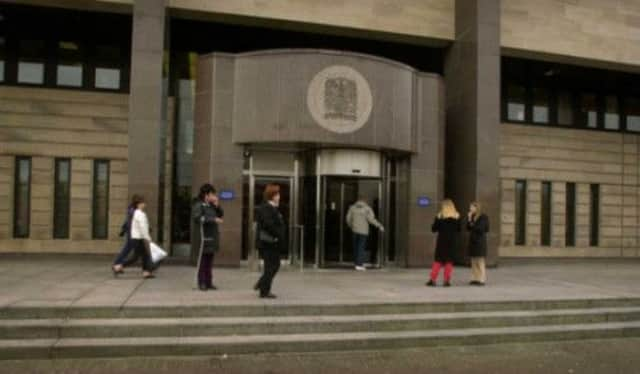Prosecutor’s wife jailed after embezzling over £600k


Donna Shedden, 49, took large sums of cash from her employers, Charlton Chauffeur Drive Ltd, to fund a lavish lifestyle that included expensive restaurants, jewellery and clothes.
Shedden, who was employed as a financial manager, continued to take money from the company when it faced hard times, forcing the employers to let staff go and cut wages.
Advertisement
Hide AdAdvertisement
Hide AdShe was finally caught after a colleague grew suspicious over her “inappropriate” behaviour where the company finances were concerned and investigated her while she was on holiday to South Africa.
At Glasgow Sheriff Court yesterday Shedden, from Newton Mearns, was jailed for 32 months after she admitted embezzling £613,073 between March 2007 and February 2013.
Sheriff John McCormick told her that he took into consideration all of the cirumstances including the fact that her “family life has been devastated”.
He told her that she committed the crime while in a “trusted position” and “only a custodial sentence was appropriate”.
The court was told Shedden, who is married to procurator fiscal depute William Mackay, had been employed by the multinational chauffeur company since October 2003 and worked her way up from a part-time book-keeper to financial manager.
She dealt with the company payroll and day-to-day transactions, and was regarded as a “trusted member of staff”.
Procurator fiscal depute Erin Campbell told the court another employee, Iain Watt, a group financial controller, became suspicious and felt Shedden wasn’t behaving as she should.
She said: “Being aware that the accused was a well-trusted employee and long-serving member of staff and there could be a variety of explanations, he decided to explore the matter discreetly and therefore he waited until the accused took a holiday before carrying out further investigation.”
Advertisement
Hide AdAdvertisement
Hide AdShedden and her husband went to South Africa from 13 January, until the middle of February.
Miss Campbell continued: “Mr Watt used this opportunity to look deeper into the company finances. While checking recent bank payments the accused had authorised, he noticed an unusual payment into her personal account.
“He carried out online bank checks for the period of the six months previous. In that six-month period he calculated payments amounting to around £60,000 had been made into the accused’s personal account over and above her legitimate wages.”
The court was told Shedden – who earned £30,000 a year – was electronically transferring sums of money that she was not entitled to from the company account into her personal one.
When she returned from her holiday, she was picked up by a limo from her firm and later she was taken to the company headquarters at Birkmyre Road, Govan, under the pretence she was to sign a document.
She was confronted by her boss, Michael O’Hare, about the money in her account and she admitted the offence. She met with Mr O’Hare the following day, when she signed a document drafted by a lawyer that she would pay the money back.
Miss Campbell said: “When the meeting took place, the accused stated she had stolen around £80,000. That sum was entered in to the document she signed.”
But the court heard she later admitted that she had taken a sum closer to £600,000 and she accepted she could not repay that amount and gave Mr O’Hare her car which was sold for £7,600. He was also given access to her personal online account which allowed him to see her bank statements.
Advertisement
Hide AdAdvertisement
Hide AdOnce the full extent of her crime was known, the police were contacted and she was later charged.
Miss Campbell said: “Analysis of the accused bank statement would indicate she had engaged in a lifestyle far in excess of what she ought to have been able to afford.”
Shedden was using the cash for credit card and store card payments as well as loans.
The court was told she spent the money largely on clothes, restaurants, jewellery and social activities and was described as a “compulsive spender”.
It was also heard that between 2008 and 2009 the firm had problems which led to a restructure of the company, four employees to be laid off and a reduction in drivers’ wages.
It was said on her behalf that she was “overwhelmed with guilt” when the full amount of money taken was revealed.